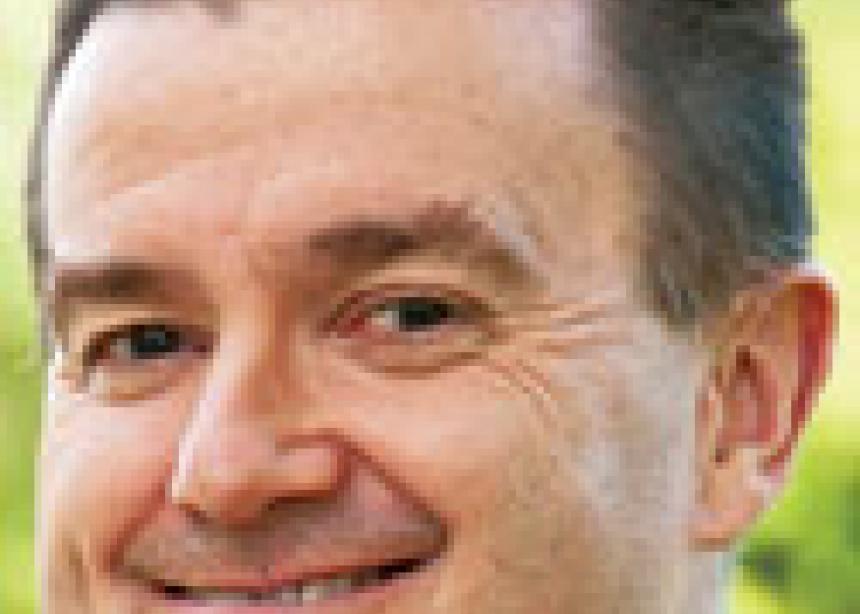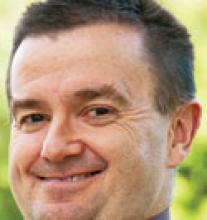Many of us dream about how we might spend a large, unexpected windfall. Some imagine travelling to exotic locales, or owning a new vehicle or dream home. Some dream about making a difference.
I would use my imaginary windfall to invest in our pastoral leaders and the future health of the church by funding financial literacy programs at Bible colleges and seminaries.
Debt is a huge issue confronting our society. The average Canadian owes $1.65 for every dollar of after-tax income earned. It would take over half a year’s salary for the average Canadian to repay his/her consumer non-mortgage debt.
How much training do church leaders get at seminaries and Bible colleges so they can help people learn how to live within their means? Basically nothing. When I asked about this at a Mennonite ministerial gathering this winter, some nodded and murmured assent. No one disagreed.
Not only do seminarians graduate ill-equipped to help members of their congregation in this area, increasing numbers are graduating with crippling debt loads that impair their own ability to be effective, and may even force them out of ministry. This situation also reduces the pool of candidates who are able to serve at smaller congregations. (A shortage of pastors willing or able to serve small and rural churches is an increasingly major concern across Canada, according to a recent study by the Evangelical Fellowship of Canada.)
Some seminary graduates have student debt loads approaching or even exceeding $100,000. Graduates head into ministry and are offered part-time positions, sometimes with few benefits. Many times their first churches are in small or rural communities where there are limited opportunities to earn additional income unless they are handy with a hammer or a computer.
It’s hard enough for pastors to talk about money, let alone lead by example, without the pressure of unresolved personal challenges in that area. Fortunately, some organizations are recognizing the problem and taking steps to address it.
Luther Seminary in Minnesota has a financial coaching program through its Center for Stewardship Leaders. Any student who applies for financial assistance at Luther is paired with a trained volunteer coach. Coaches are transparent about their own choices and situation, and provide a safe environment to guide students through their challenges over at least one academic year. “The job of financial coaching is to help you get your financial life in order, clear the way to a sense of well-being about money and free you to be a stewardship leader,” the coaching manual states.
After developing the coaching manual and recruiting mentors, the seminary spends only a few thousand dollars a year on the program, director Charles Lane tells me.
The United Methodist Church in Indiana takes a more holistic approach. Matching grants from the Lilly Endowment provide educational programs for clergy and lay leaders, plus grants to clergy or clergy spouses.
If I had a million dollars, I’d fund Bible colleges and seminaries to offer financial literacy programs. Tuition and materials would be free for anyone who commits to full attendance and participation. On successful completion, a graduate would get the added bonus of a grant that could be applied against student debt.
We ask a lot of our pastors. Giving them the training they need in financial matters would be a great gift for them, their congregations and the wider church.
Mike Strathdee is a stewardship consultant at the Kitchener, Ont., office of Mennonite Foundation of Canada (MFC). For more information on impulsive generosity, stewardship education, and estate and charitable gift planning, contact your nearest MFC office or visit www.MennoFoundation.ca.



Comments
Very good point, Mike, and well put. Allan Rudy-Froese shared the article and we deeply resonate with the convictions you display here. Financial security is no absolute goal, but financial literacy is a crucial skill set both to model and to teach to others. Thanks!
Add new comment
Canadian Mennonite invites comments and encourages constructive discussion about our content. Actual full names (first and last) are required. Comments are moderated and may be edited. They will not appear online until approved and will be posted during business hours. Some comments may be reproduced in print.